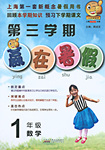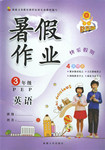题目内容
It’s necessary to be prepared for a job interview. ______ will certainly do you good.
A. Well dressed B. Well dressing C. Being well dressed D. Well dressing up
C
解析:
考查非谓语动词作主语。句意:参加工作面试时有必要做准备,穿合适的衣服肯定对你有好处。doing能作主语,表示“穿着什么样的衣服”需用be dressed in,由此可知答案为being well dressed。

练习册系列答案
 第三学期赢在暑假系列答案
第三学期赢在暑假系列答案 学练快车道快乐假期暑假作业新疆人民出版社系列答案
学练快车道快乐假期暑假作业新疆人民出版社系列答案
相关题目